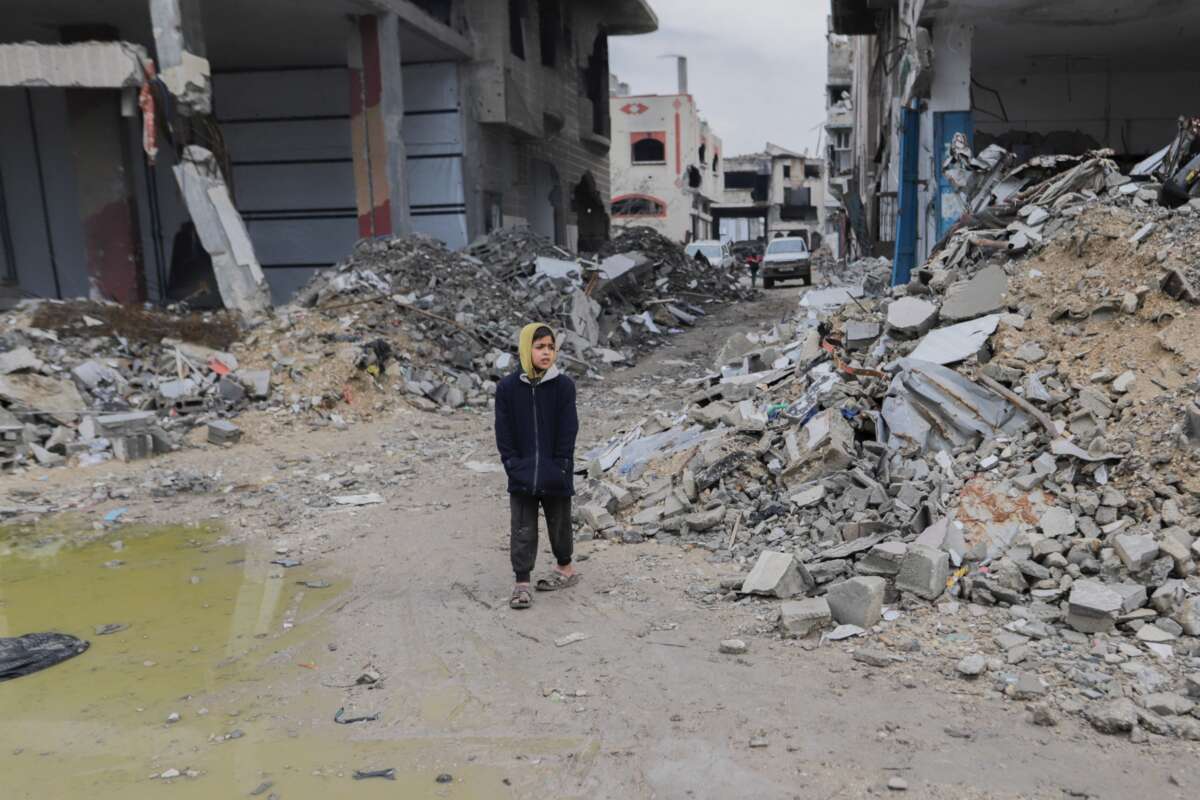The life expectancy of Palestinians in Gaza was slashed nearly in half amid the first year of Israel’s genocide, a new study finds, taking decades off of the average life of a person in the besieged enclave.
An article published online in The Lancet finds that life expectancy across the population dropped by 34.9 years between October 2023 and September 2024, going from 75.5 years before the genocide to 40.5 years.
This is a decrease of 46 percent, or about half of the pre-genocide life expectancy, the study found.
Losses were greater for men, who lost 38 years in life expectancy on average, while women lost 30 years.
These estimates are conservative, study authors said. They noted that they could not account for deaths due to “indirect” effects of Israel’s war on Gaza, like starvation and disease, in their calculations, meaning that the life expectancy may have dropped even lower than their estimates.
Further, the 40.5 expectancy estimate does not account for people missing and presumed dead under the rubble due to the lack of an accurate death toll. Palestinian officials have estimated that there are over 14,000 people whose bodies are trapped under rubble as a result of Israel’s bombing campaign.
If estimates of those missing under the rubble are counted, the study found, the life expectancy drops to 36.1 years.
If researchers only count the deaths of people for whom they have complete identifying information and were logged in the UN records as of August 2024 — 21,953 deaths — the average life expectancy rises to 44.4 years.
However, it has long been said by experts that even the official toll, which includes deaths without all identifying information, is far lower than the true count; one Lancet article published last month, for instance, found that the number of deaths due to traumatic injury alone is likely at least over 64,000. And a Lancet letter last summer estimated that the true death toll could be 186,000 or more when accounting for “indirect” deaths due to Israel’s blockade.
“It is highly likely that our central estimates underestimate true losses, because they do not include individuals reported missing or under the rubble,” the study on life expectancy says.
The study was conducted using data from the Gaza Ministry of Health as well as data from the UN Relief and Works Agency for Palestine Refugees (UNRWA). Researchers from the University of Pennsylvania, a Palestinian Central Bureau of Statistics official, and UN officials authored the article.
If the findings are accurate, this means that the life expectancy of Palestinians in Gaza amid the genocide fell below that of the countries with the lowest life expectancies of the world, with Chad and Lesotho having the lowest expectancy of 53 years.
By contrast, the last time that the U.S. life expectancy at birth for the average American was close to 40 was during the height of the Spanish flu pandemic, on the heels of World War I, and before that, pre-Industrial Revolution.
Press freedom is under attack
As Trump cracks down on political speech, independent media is increasingly necessary.
Truthout produces reporting you won’t see in the mainstream: journalism from the frontlines of global conflict, interviews with grassroots movement leaders, high-quality legal analysis and more.
Our work is possible thanks to reader support. Help Truthout catalyze change and social justice — make a tax-deductible monthly or one-time donation today.
